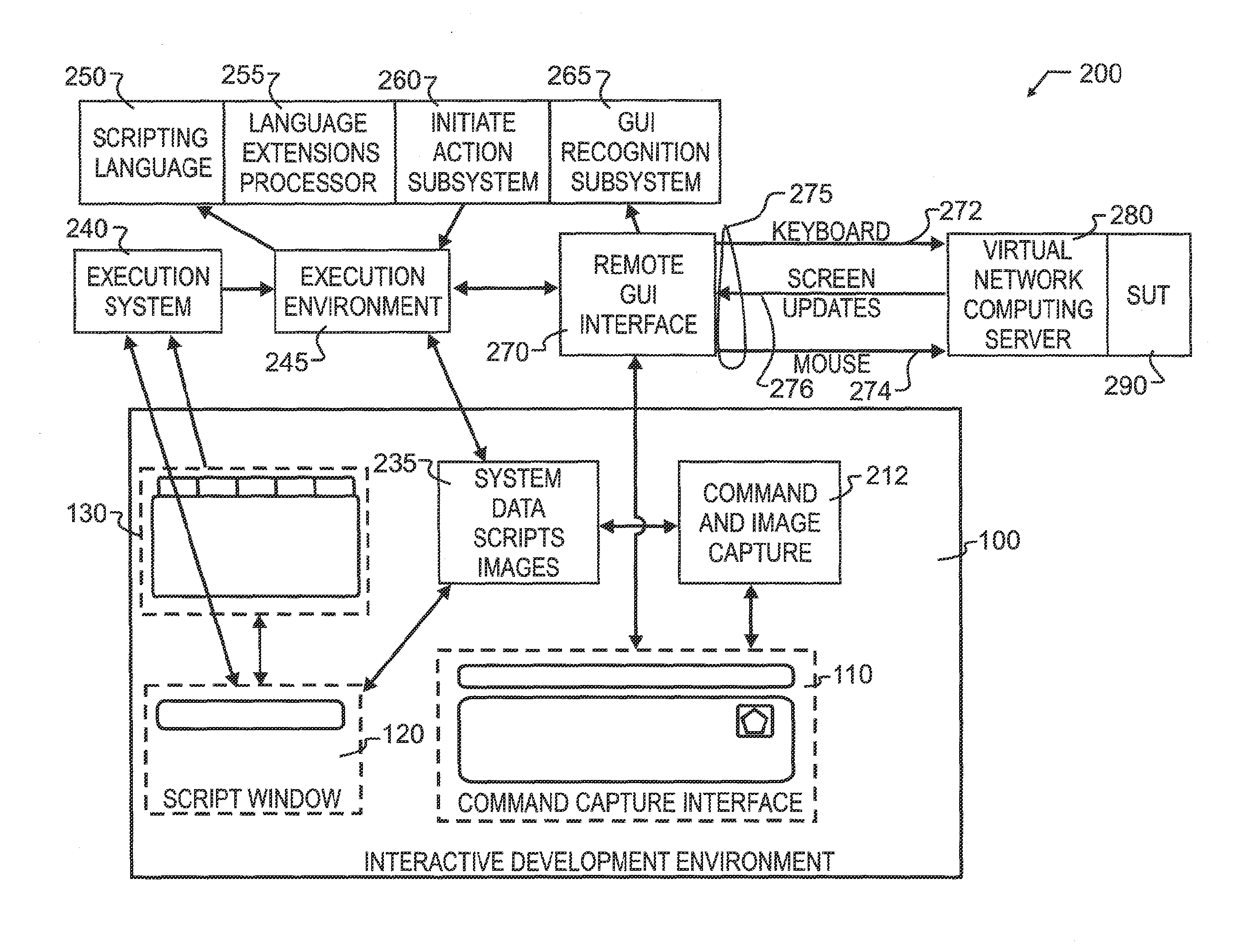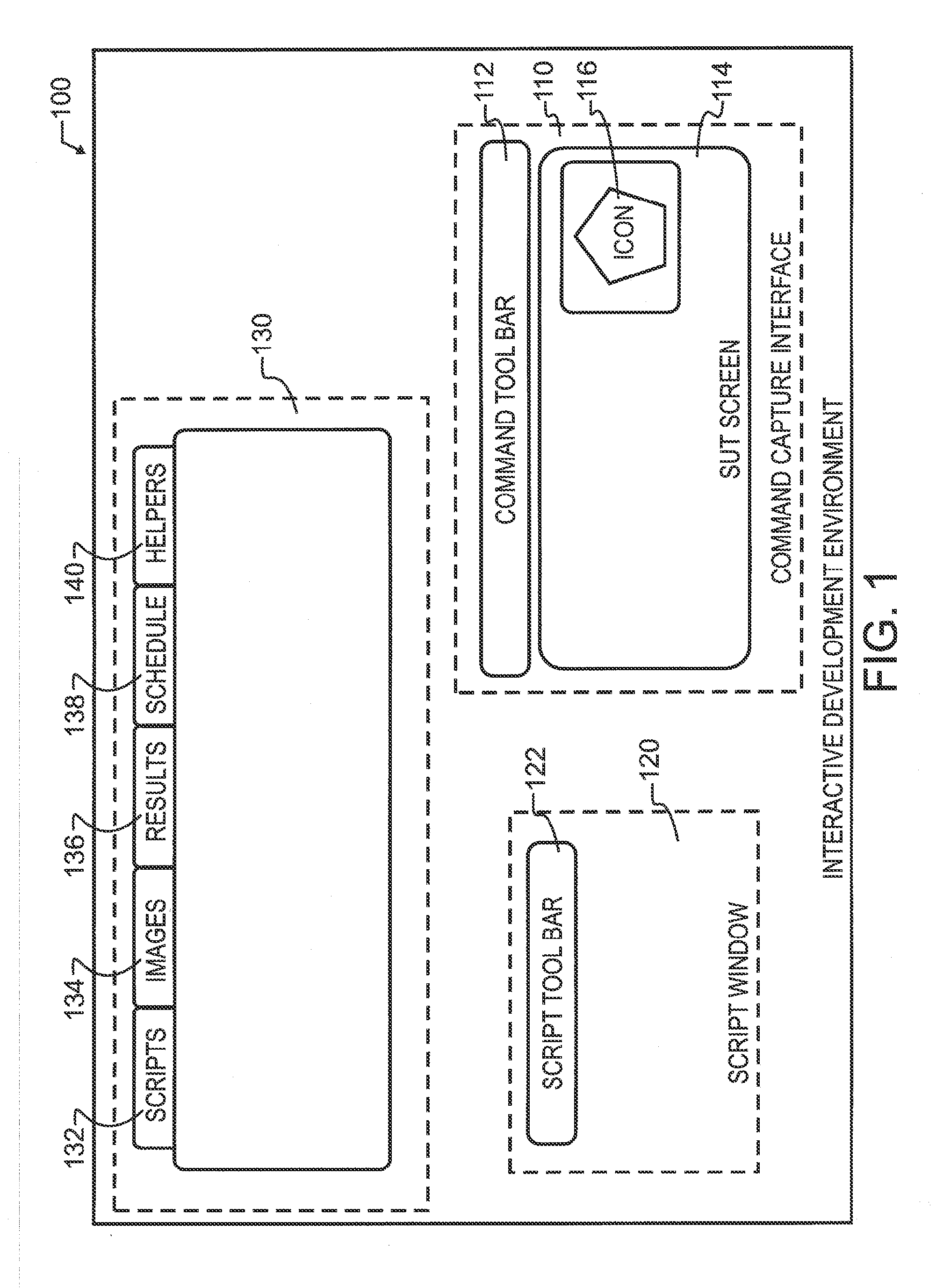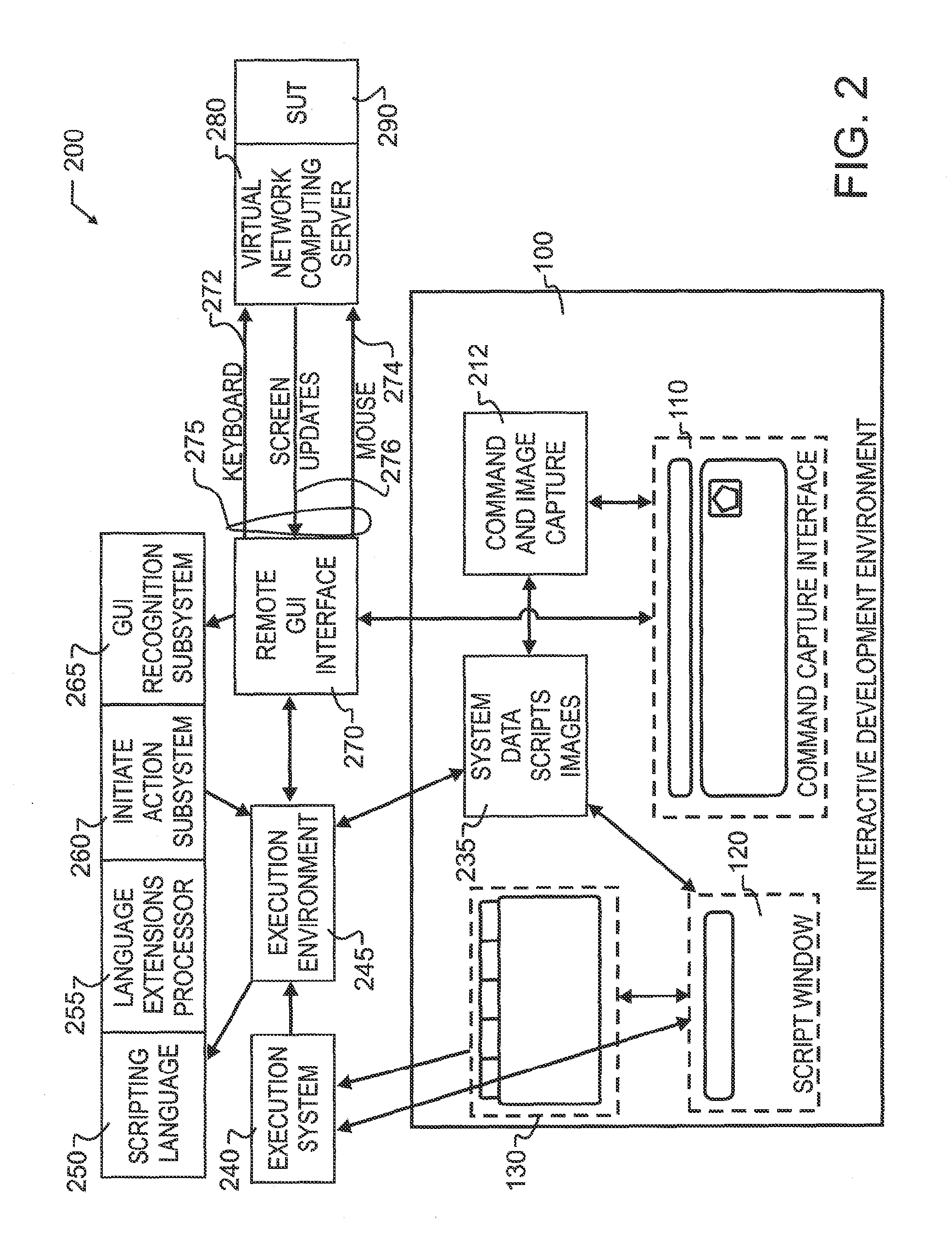Method for monitoring a graphical user interface on a second computer display from a first computer
a graphical user interface and computer technology, applied in the field of computer systems, can solve the problems of inability to monitor the graphical user interface on the second computer display from the first computer, the sensitivity of the environment, and the generation of an enormous amount of heat, and achieve the effects of simple and quick execution of operations, low cost, and convenient us
- Summary
- Abstract
- Description
- Claims
- Application Information
AI Technical Summary
Benefits of technology
Problems solved by technology
Method used
Image
Examples
Embodiment Construction
[0021]Manifested in the preferred embodiment, the present invention provides a computer user the ability to control any other computer connected through an interface, using the standard graphical user interface (GUI). As illustrated in FIG. 1, a user interface which takes the form of an interactive development environment (IDE) 100, will preferably include several functional windows 110, 120, 130 therein. More particularly, window 110 provides a command capture interface which most preferably provides a system-under-test (SUT) screen display 114 which provides a visual depiction of the display screen generated by the system for which the operation of the interactive development environment 100 is designed to control. Within that display there will be various graphical representations 116 that may take the form of icons as illustrated, or various buttons, message boxes, prompts or any other graphical image or control. The depiction may be an exact copy of the remote graphical user in...
PUM
 Login to View More
Login to View More Abstract
Description
Claims
Application Information
 Login to View More
Login to View More - R&D
- Intellectual Property
- Life Sciences
- Materials
- Tech Scout
- Unparalleled Data Quality
- Higher Quality Content
- 60% Fewer Hallucinations
Browse by: Latest US Patents, China's latest patents, Technical Efficacy Thesaurus, Application Domain, Technology Topic, Popular Technical Reports.
© 2025 PatSnap. All rights reserved.Legal|Privacy policy|Modern Slavery Act Transparency Statement|Sitemap|About US| Contact US: help@patsnap.com



